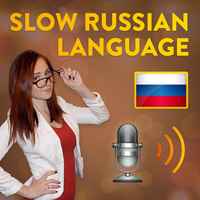Episode 9 – Russian Valentine’s Day
||Valentinstag|Tag
Episode|Russian|Valentine's|Valentine's Day
|||Día
odcinek||Walentynki|
Episode 9 - Russischer Valentinstag
Episode 9 – Russian Valentine's Day
Episodio 9 - San Valentín ruso
Episode 9 - La Saint-Valentin russe
Episodio 9 - San Valentino russo
第9話「ロシアのバレンタインデー
에피소드 9 – 러시아 발렌타인 데이
Aflevering 9 - Russische Valentijnsdag
Odcinek 9 - Rosyjskie Walentynki
Episódio 9 - Dia dos Namorados Russo
Avsnitt 9 - Ryska alla hjärtans dag
Bölüm 9 - Rus Sevgililer Günü
第 9 集 – 俄罗斯情人节
День святого Валентина в России
|des heiligen|Valentinstag||
Valentine's Day|of|Valentine||Russia
|santo|Valentín||en Rusia
dzień|świętego|Walentego||
|hellige|||
Valentine's Day in Russia
Día de San Valentín en Rusia
ロシアのバレンタインデー
День святого Валентина пришел в Россию в начале 90-х годов.
|||пришел||||||
|||est arrivé||||au début des||années
day|on (with 'День святого')|Valentine|arrived||to Russia|in|at the beginning|in the early 90s|in the ... (with 'начале 90-х')
|||kam||Russland||Anfang der|Jahren|Jahren
|santo|Valentín|||a Rusia||principios||
|||przyszedł||||początku|в|lat
Valentine's Day came to Russia in the early 90's.
El Día de San Valentín llegó a Rusia a principios de los 90.
バレンタインデーがロシアにやってきたのは、1990年代初頭のこと。
В это время сняли «железный занавес», и в страну наконец-то стала проходить западная культура.
|||levantaron||telón|||el país|por fin|entonces|empezó a||occidental|cultura occidental
||zu dieser Zeit|nahmen ab|eiserner Vorhang|Eiserner Vorhang|||das Land|||begann|einströmen|westliche|Kultur
into|at this (time)|time|removed|the Iron|the Iron Curtain|and||country|finally||started|to spread|Western|culture
|||ont levé|rideau de fer|rideau de fer||||||a commencé à|pénétrer dans|occidentale|culture occidentale
||czas|zdjęli|żelazna|kurtyna|||kraj|w końcu||zaczęła|przechodzić|zachodnia|kultura
At that time, the "Iron Curtain" was removed, and Western culture finally began to pass into the country.
En este momento, se eliminó el "Telón de acero" y la cultura occidental finalmente comenzó a ingresar al país.
この間、鉄のカーテンが解かれ、ようやく西洋文化が流入するようになった。
Однако даже сегодня, спустя двадцать лет, этот праздник не очень популярен среди россиян.
||||||||||||россиян
|||vingt ans après|vingt|||fête|||très populaire||
however|even|today|after|twenty|years|this|the holiday||very much|popular|among|Russians
Aber|selbst||nach||||Feiertag|||beliebt|unter den|den Russen
sin embargo|||después de||años||fiesta|||popular|entre|los rusos
jednak|nawet|dzisiaj|po upływie|dwadzieścia|lat||święto||bardzo|popularny|among|Rosjan
However, even today, after twenty years, this holiday is not very popular among Russians.
Sin embargo, incluso hoy, veinte años después, esta fiesta no es muy popular entre los rusos.
しかし、20年経った現在でも、ロシア人の間ではこの祝日はあまり人気がないようです。
Конечно, магазины украшают сердечками, везде продаются конфеты и подарки в форме сердца, по телевизору показывают романтические комедии.
||||||||||||||||комедии
||décorent avec des|cœurs|partout|se vendent|||cadeaux||||||||
of course|the shops|decorate|with hearts|everywhere|are sold|sweets||gifts||in the shape of|with hearts|in|on TV|show|romantic|romantic comedies
||dekorere||||||||||||||
|die Geschäfte|dekorieren|Herzen|überall|werden verkauft|Süßigkeiten||||in Form von|Herz|||zeigen|romantische|romantische Komödien
Oczywiście|sklepy|dekorują|sercami|wszędzie|są na sprzedaż|cukierki||prezenty||kształcie|serca|w|telewizor|pokazują|romantic|komedie
|tiendas|decoran|corazones|en todas partes|se venden|||regalos||forma|corazón||televisión|muestran|románticas|comedias
Of course, the shops are decorated with hearts, sweets and gifts in the shape of a heart are sold everywhere, romantic comedies are shown on TV.
Por supuesto, las tiendas están decoradas con corazones, los dulces y los regalos en forma de corazón se venden en todas partes, las comedias románticas se muestran en la televisión.
もちろん、お店にはハートが飾られ、あちこちでお菓子やハート型のプレゼントが売られ、テレビではラブコメが放映されています。
Тем не менее, мало кто по-настоящему отмечает этот праздник.
||néanmoins||||vraiment|célèbre||
dem||weniger|wenige|wenige||wirklich|feiert||Feiertag
nevertheless|nevertheless (with 'тем менее')|nevertheless (with 'Тем не')|few|few|in|genuinely|celebrates|this|the holiday
||mniej|mało|kto|w rzeczywistości|naprawdę|marks||święto
Doch nur wenige Menschen feiern diesen Feiertag wirklich.
However, few people truly celebrate this holiday.
Sin embargo, pocas personas realmente celebran esta fiesta.
しかし、この祝日を本当に祝っている人はほとんどいません。
Старшее поколение и некоторые религиозные люди считают его «чужим», «нерусским».
Génération plus âgée|génération plus âgée|||||considèrent comme||étranger|
older|the older (generation)|and|some|religious|people|consider|him|foreign|foreign
||||||||fremmed|ikke-russisk
ältere|Generation||einige|religiösen||halten||fremd|nicht-russisch
starsze|pokolenie||niektórzy|religijnymi|ludzie|uważają|jego|obcym|nie-Rosjaninem
|generación|||religiosos||consideran|||no ruso
Die ältere Generation und einige religiöse Menschen halten sie für "fremd", "unrussisch".
The older generation and some religious people consider him a “stranger”, “non-Russian”.
La generación anterior y algunas personas religiosas lo consideran "extranjero", "no ruso".
年配の方や一部の宗教家は「異質なもの」「非ロシア的なもの」と考えています。
Иногда они даже организовывают какие-то митинги против дня святого Валентина.
Parfois||||||manifestations|||saint|
sometimes|||organize|some|some|protests|against|||Valentine
|||organisieren|||Versammlungen|gegen|Tag|des heiligen|Valentinstag
||incluso|organizan|||reuniones||||
Czasami||nawet|organizują|jakieś||wiece protestacyjne|przeciw|dnia|świętego|
Sometimes they even organize some rallies against Valentine's Day.
A veces incluso organizan algunos mítines contra el Día de San Valentín.
時には反バレンタインデーの集会を開催することもあります。
Для большинства молодых людей этот день – просто еще один повод провести время с любимыми, сделать друг другу небольшие сюрпризы.
|de la plupart|jeunes|||||||occasion||||êtres chers||||petites|petites surprises
|the majority|young||||just|just (with 'один')|just another|an occasion|to spend|time|with|with loved ones|to do|each other|to each other|small|surprises
|der Mehrheit|junger||||einfach||ein|Anlass|verbringen|verbringen||den Liebsten|einander|einander|einander|kleine|Überraschungen
|||||||||pretexto||||queridos||||pequeños|sorpresas
|większości młodych ludzi|młodych|ludzi|||po prostu|jeszcze jeden|jeden|powód|spędzić|czas||ukochanymi|zrobić|przyjaciół|przyjacielu|małe|surprises
For most young people, this day is just another reason to spend time with their loved ones, to make each other small surprises.
Para la mayoría de los jóvenes, este día es solo otra razón para pasar tiempo con sus seres queridos, para darse pequeñas sorpresas.
多くの若者にとって、この日は大切な人と過ごし、お互いにちょっとしたサプライズをするための口実に過ぎないのです。
Многие пары устраивают романтический ужин при свечах и признаются друг другу в любви.
|beaucoup de couples|||||à la bougie||se déclarent||||d'amour
many|couples|organize|a romantic|dinner|during|by candle|and|confess||||love
||||||lysene||||||
Viele|Paare|veranstalten|romantisches|Abendessen||Kerzenlicht||gestanden||||der Liebe
Wiele|pary|organizują|romantyczny|kolacja|при|świecach||przyznają się|друг|sobie||miłości
|parejas|organizan|romántica|cena||velas||se reconocen||||
Viele Paare veranstalten ein romantisches Abendessen bei Kerzenschein und erklären einander ihre Liebe.
Many couples arrange a romantic dinner by candlelight and confess each other love.
Muchas parejas tienen una cena romántica a la luz de las velas y se confiesan su amor.
多くのカップルがロマンチックなキャンドルディナーを楽しみ、愛を誓い合う。

